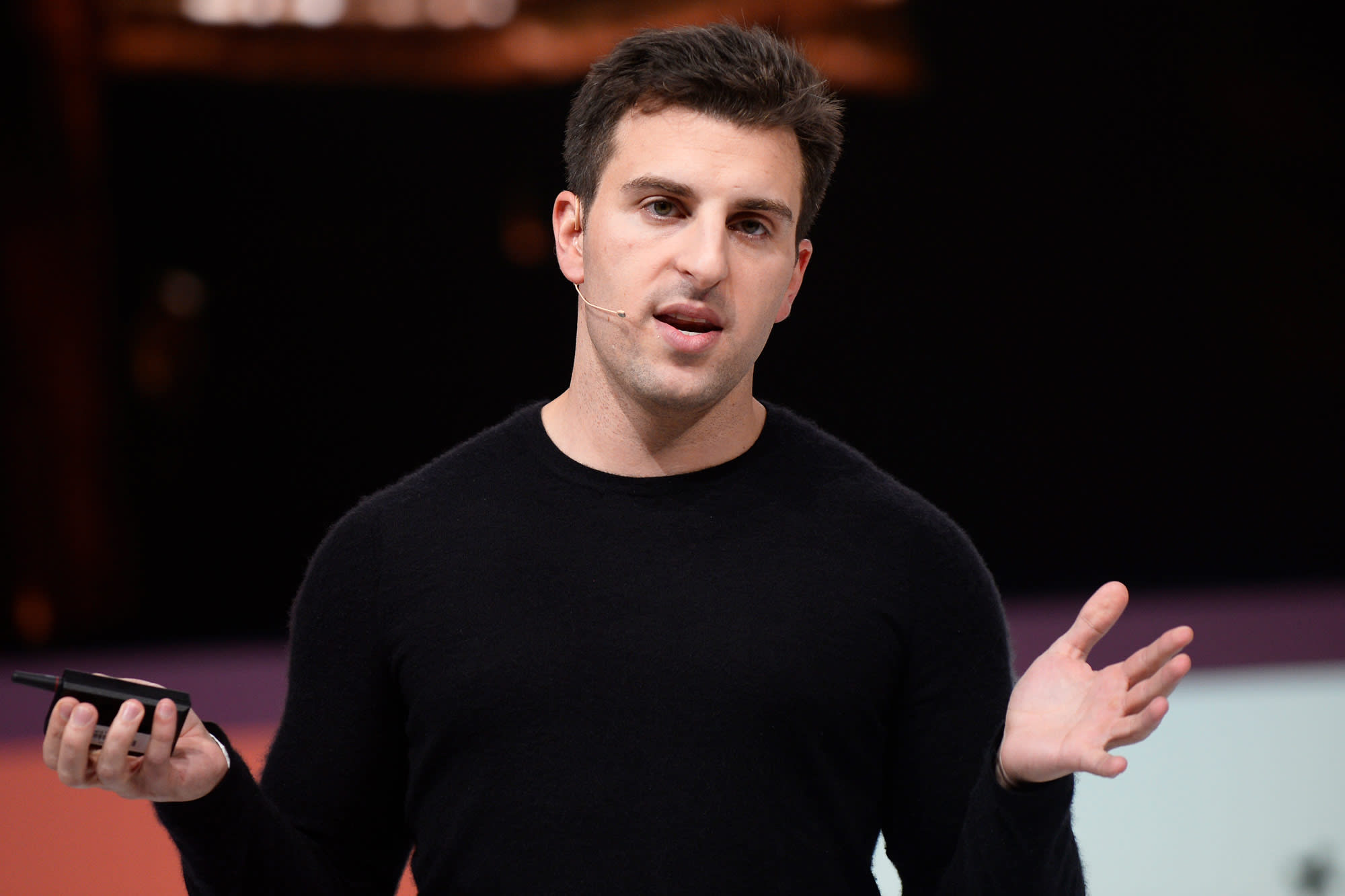Airbnb CEO Brian Chesky.
John van Hasselt | Corbis | Getty Images
A short-term rental vacation host has filed a proposed class action lawsuit against Airbnb, alleging that the tech company violated its contract with hosts when the company offered full refunds to guests in the wake of the coronavirus pandemic in March.
The lawsuit was filed Thursday in the United States District Court for the Northern District of California in San Francisco by Anthony Farmer, an Airbnb host in Texas. Farmer had been a host with Airbnb for three years. Farmer stopped hosting with Airbnb as a result of $655 he claims the company owes him from canceled reservations. The lawsuit alleges three claims against Airbnb: breach of contract, breach of fiduciary duty and violation of California consumer protection laws.
The lawsuit comes as Airbnb gears up for an initial public offering following a rough year for the company and the travel industry as a result of Covid-19. Hosts have complained about the company’s handling of guest cancellations due to the pandemic, with the company in March enacting an extenuating circumstances policy that overrode many hosts’ refund policies. Hosts have also complained about missing payments while many guests have complained that Airbnb has not given them refunds for trips affected by the pandemic.
“Because of the Covid crisis, hosts aren’t getting paid, guests often aren’t getting refunds and Airbnb is just coming out way ahead,” said Aaron Blumenthal, attorney at Gibbs Law representing Farmer. “Something that the lawsuit will be seeking is an accounting of where the money is.”
The lawsuit is notable as it comes after Farmer first tried to take legal action against Airbnb through arbitration court, as stated in Airbnb’s terms and services for hosts. To file his case in arbitration, Farmer worked with FairShake, a company that helps consumers file legal claims against companies. FairShake has been working with a number of Airbnb hosts to pursue legal action against the company since March.
“Neither the guests nor the hosts were getting that money back,” said Teel Lidow, CEO of FairShake. “That’s what got us started putting together this arbitration campaign that eventually led to this class action.”
Anthony Farmer, an Airbnb host in Texas, has filed a proposed class action lawsuit against Airbnb.
Jimmy Zuninga Photography courtesy of Anthony Farmer
Farmer was able to file a public lawsuit against the company after Airbnb failed to pay the required legal fees for arbitration cases on time. A new California law allows plaintiffs to take their cases out of arbitration and to court if the company stalls payments beyond 30 days of receiving an invoice.
“Them not paying the arbitration was just another slap in the face,” Farmer said. “It’s shocking and disgraceful.”
Prior to the pandemic, Farmer relied on Airbnb as his primary source of income. Farmer used a strict cancellation policy that would have entitled him to at least a portion of a reservation booking if a guest needed to cancel. That was overridden by Airbnb’s extenuating cancelation policy. Although $655 may not appear like a lot of money, he was counting on that money to pay his mortgage, utilities, homeowner association fee and other costs that come with running a short-term rental, Farmer said.
“This is definitely impacting me during the pandemic,” Farmer said. “I’m pissed about it. I’m angry, to be frank, and I’m sure that I’m not the only person impacted.”
Blumenthal said they hope the case is granted class action status so other hosts who have similarly been impacted can join the lawsuit. With the company preparing to IPO, this case could be of interest to the public, Blumenthal said.
“I think the public and potential investors would want to know as much as hosts how much money Airbnb has that, if our lawsuit is correct, is legally owed to the hosts,” Blumenthal said.
In March, Airbnb activated an extenuating circumstance policy to provide guests impacted by the pandemic with full refunds for their bookings, overriding hosts’ refund policies. Many guests complained that when they tried to claim those refunds, they were either unable to recoup the money in full, had to jump through numerous hoops or were not given the refunds at all.
Later, Airbnb announced it would establish a $250 million coronavirus relief fund for hosts, returning 25% of what they would have normally received under their cancellation policies, but many hosts who spoke with CNBC complained that they were not receiving the correct amounts or any payments at all.
In August, more hosts complained that they were missing payments from the company. Airbnb blamed these missing payments on “a small technical issue.”
“I want justice for other hosts who’ve been hurt by this, and I want Airbnb to be held accountable,” Farmer said.
Airbnb did not respond to a request for comment.
